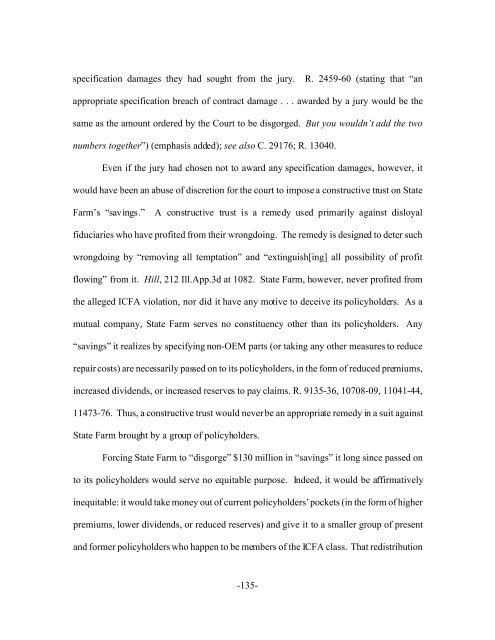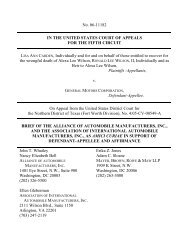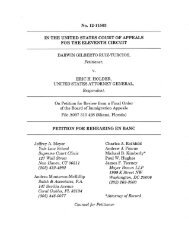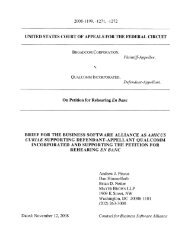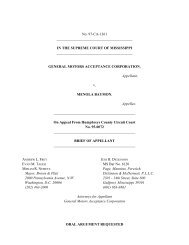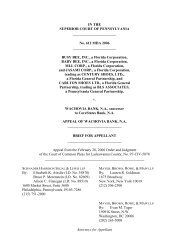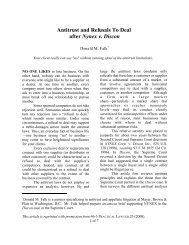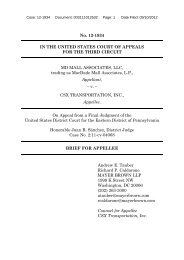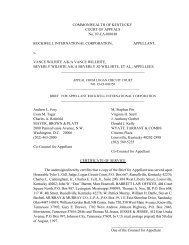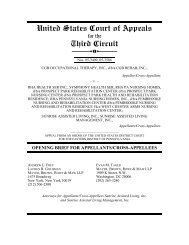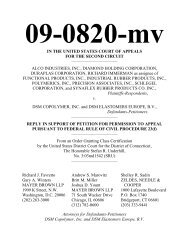No. 5-99-0830 IN THE APPELLATE COURT OF ... - Appellate.net
No. 5-99-0830 IN THE APPELLATE COURT OF ... - Appellate.net
No. 5-99-0830 IN THE APPELLATE COURT OF ... - Appellate.net
You also want an ePaper? Increase the reach of your titles
YUMPU automatically turns print PDFs into web optimized ePapers that Google loves.
specification damages they had sought from the jury. R. 2459-60 (stating that “an<br />
appropriate specification breach of contract damage . . . awarded by a jury would be the<br />
same as the amount ordered by the Court to be disgorged. But you wouldn’t add the two<br />
numbers together”) (emphasis added); see also C. 29176; R. 13040.<br />
Even if the jury had chosen not to award any specification damages, however, it<br />
would have been an abuse of discretion for the court to impose a constructive trust on State<br />
Farm’s “savings.” A constructive trust is a remedy used primarily against disloyal<br />
fiduciaries who have profited from their wrongdoing. The remedy is designed to deter such<br />
wrongdoing by “removing all temptation” and “extinguish[ing] all possibility of profit<br />
flowing” from it. Hill, 212 Ill.App.3d at 1082. State Farm, however, never profited from<br />
the alleged ICFA violation, nor did it have any motive to deceive its policyholders. As a<br />
mutual company, State Farm serves no constituency other than its policyholders. Any<br />
“savings” it realizes by specifying non-OEM parts (or taking any other measures to reduce<br />
repair costs) are necessarily passed on to its policyholders, in the form of reduced premiums,<br />
increased dividends, or increased reserves to pay claims. R. 9135-36, 10708-09, 11041-44,<br />
11473-76. Thus, a constructive trust would never be an appropriate remedy in a suit against<br />
State Farm brought by a group of policyholders.<br />
Forcing State Farm to “disgorge” $130 million in “savings” it long since passed on<br />
to its policyholders would serve no equitable purpose. Indeed, it would be affirmatively<br />
inequitable: it would take money out of current policyholders’ pockets (in the form of higher<br />
premiums, lower dividends, or reduced reserves) and give it to a smaller group of present<br />
and former policyholders who happen to be members of the ICFA class. That redistribution<br />
-135-


